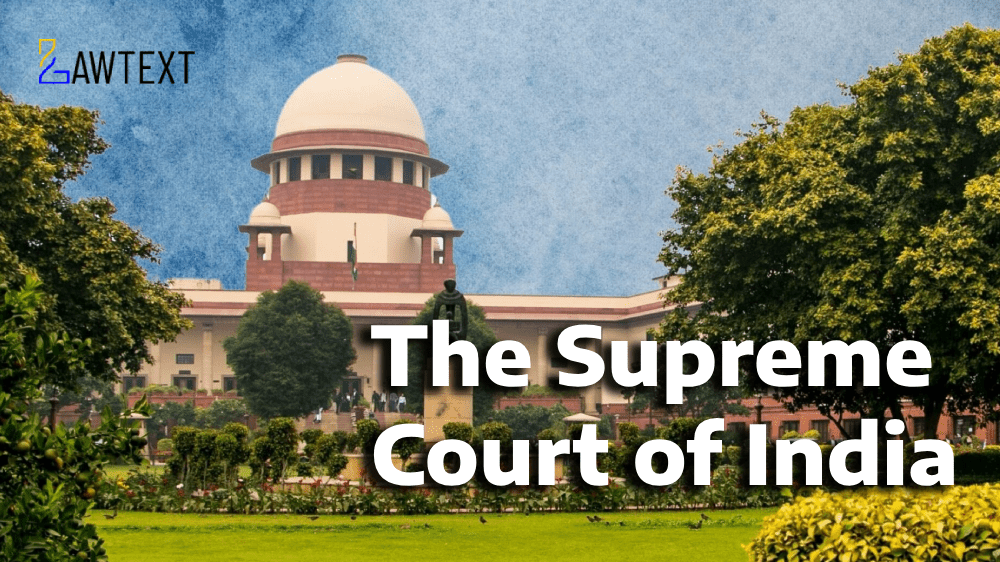

Indian Penal Code, 1860 (IPC) – Section 302 (Murder)
Code of Criminal Procedure, 1973 (CrPC) – Sections 401(3), 401(5), 372
Subjects:
Judicial Overreach, Revisional Jurisdiction, Acquittal, Wrongful Conviction, Natural Justice, Fair Trial, Compensation, Victim Rights, High Court Powers, Supreme Court Review.
Facts:
Nature of the Litigation: Criminal appeals challenging the Punjab and Haryana High Court’s decision, which overturned the acquittal of the appellants and convicted them for murder under Section 302 IPC through its revisional jurisdiction.
Who is Asking the Court and for What Remedy? The appellants, who were acquitted by the Sessions Court but later convicted by the High Court in a revision petition, approached the Supreme Court seeking restoration of their acquittal and relief from wrongful conviction.
Reason for Filing the Case: The appellants contended that the High Court acted beyond its jurisdiction by converting an acquittal into a conviction in a revision petition, violating Section 401(3) CrPC and principles of natural justice.
What Has Been Already Decided Until Now? The Sessions Court acquitted the appellants, but the High Court, acting on a revision petition filed by the deceased’s father, overturned the acquittal and convicted them under Section 302 IPC. The Supreme Court reviewed this decision and found multiple legal and procedural flaws.
Issues Raised in the Appeal:
Whether the High Court exceeded its jurisdiction under Section 401(3) CrPC by converting an acquittal into a conviction in a revision petition.
Whether the lack of notice to the appellants in the revision proceedings violated principles of natural justice.
Whether a revision petition was maintainable after the death of the original petitioner (deceased’s father).
Whether the High Court’s reliance on police statements instead of trial evidence was legally valid.
Submissions/Arguments: Appellants:
The High Court acted beyond its revisional powers under Section 401(3) CrPC, which explicitly prohibits converting an acquittal into a conviction.
The appellants were not served with notice during the revision proceedings, violating their right to a fair trial.
The petitioner in the revision had passed away before the High Court judgment, rendering the proceedings legally defective.
The High Court relied on extraneous evidence, including police statements, which were not part of the trial record.
Respondents (State & Prosecution):
The High Court’s decision was justified based on the gravity of the offense.
The appellants’ acquittal was erroneous and required correction in the interest of justice.
The revision petition was maintainable despite the petitioner’s death, as the case involved public interest.
Decision:
The Supreme Court set aside the High Court’s judgment and restored the trial court’s acquittal.
The Court held that the High Court violated Section 401(3) CrPC by converting an acquittal into a conviction.
The lack of notice to the appellants in the revision proceedings amounted to a denial of natural justice.
The reliance on police statements instead of sworn testimony was legally improper.
The appellants were wrongfully incarcerated for three months due to the High Court’s erroneous decision.
The State Government was directed to compensate each appellant with ₹5,00,000 within four weeks.
The Supreme Court warned against judicial overreach and emphasized adherence to due process in criminal matters.
Ratio Decidendi:
The High Court cannot convert an acquittal into a conviction in a revision petition under Section 401(3) CrPC.
The accused must be given a fair opportunity to defend themselves in any revisional proceedings affecting their rights.
A revision petition does not automatically survive the death of the petitioner unless explicitly allowed under law.
Compensation is warranted when individuals are wrongfully convicted due to judicial or procedural errors.
Precedents Cited:
Bindeshwari Prasad Singh v. State of Bihar (2002): The High Court lacks the power to convert an acquittal into a conviction in a revision petition.
Joseph Stephen v. Santhanasamy (2022): Reiterated the limitations on High Court’s revisional jurisdiction.
Mallikarjun Kodagali v. State of Karnataka (2019): Victim’s right to appeal an acquittal under Section 372 CrPC is prospective, not retrospective.
D.K. Basu v. State of West Bengal (1997): Compensation must be granted for wrongful detention.
Rudul Sah v. State of Bihar (1983): Established the principle of compensation for wrongful imprisonment.
Final Directions:
The appellants’ conviction was set aside, and their acquittal was reinstated.
The appellants’ bail bonds were discharged.
The State was ordered to compensate each appellant with ₹5,00,000 within four weeks.
The Supreme Court registry was directed to monitor compliance with the compensation order.
Conclusion:
The Supreme Court’s judgment reaffirms the strict limitations on High Court’s revisional powers, ensuring that acquitted individuals are not wrongfully convicted without due process. The ruling also underscores the judiciary’s responsibility in upholding fundamental rights and providing compensation for wrongful incarceration.
Citation: 2025 LawText (SC) (1) 293
Case Number: CRIMINAL APPEAL NOS. 5560-5561 OF 2024
Date of Decision: 2025-01-29
Case Title: MAHABIR & ORS. VERSUS STATE OF HARYANA
Before Judge: (J.B. PARDIWALA J., R. MAHADEVAN J.)
Appellant: MAHABIR & ORS.
Respondent: STATE OF HARYANA